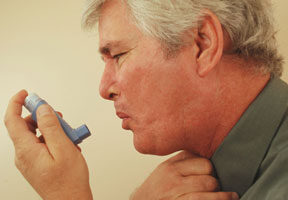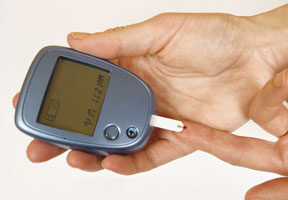- Smoking
- High blood cholesterol
- Sedentary lifestyle
- High blood pressure
- Diabetes
- Overweight or obesity

Health Information
Regular exercise
Exercising regularly is a must to keep your body health and robust. In addition to keeping your body fit, regular exercise is equally important for your mental health. The natural surge of endorphins occurring during exercise acts as your own natural anti-depressant.
Heart Health
According to the Heart Foundation of Australia, cardiovascular disease, which is the general term for diseases of the heart and blood vessels, is the leading cause of death in Australia. Roughly a third of deaths in Australia are attributed to cardiovascular disease.
Risk Factors
Several risk factors have been strongly linked to cardiovascular disease.
These include:

Dietary & Lifestyle Advice
- First and foremost; remove or reduce risk factors
- Reduce the amount of animal fats in your diet, such as removing the skin and fat from meat
- Switch to low fat varieties of dairy products
- Use monounsaturated oils for cooking such as olive, canola and sunflower in cooking
- Consume around 3 meals a week as lean red meat
- Have a minimum of 3 fish meals per week, canned or fresh
- Limit high fat or sugar snack foods such as chips, biscuits and pastries to just once a week
- Limit take away foods such pizza, creamy pastas or fried foods to just once a week
- Snack on nutritious food such as fruit such as apples and oranges, raw unsalted nuts such as almonds and brazil nuts, and seeds such as pepita and sunflower seeds
- Eat wholegrain or wholemeal breads, cereals, rice and pastas
- Add some peas and beans such as split peas, red kidney beans, baked beans and 3 bean mix to a few meals a week
- Eat 3 moderate sized meals a day - You dinner plate should be made up of a third with lean meat or fish, a third with a variety of vegetables, and a third with some cereals such as rice, wholegrain bread or pasta
- Do some sort of physical activity for at least half and hour on most days – the more fun it is, the more likely you will keep doing it. Try swimming, dancing or walking.
- Limit alcohol to 1-2 standard alcoholic drinks per day with 4 alcohol-free days per week.
Asthma
What is it?
Asthma is a condition that causes the airways in the lungs to become swollen and inflamed, extra mucousy and the muscles around the airways tighten. Asthma can begin at any age and may change over time, however it typically begins in childhood.
Causes
Individuals with asthma are more sensitive to certain triggers, such as;
- Cold and flu
- Cigarette smoke
- Inhaled allergens (eg. dust mites, pollen, mould and animal dander)
- Environmental (eg. dust, pollution and wood smoke)
- Changes in temperature and weather
- Some medications (eg. aspirin)
- Chemicals and certain scents (eg. perfumes and cleaning products)
- Emotional reactions (eg. stress)
- Some food additives and colours (this is rare)

Not all people will have the same triggers and it may be difficult to identify what triggers your asthma. Your GP can assist you with identifying your asthma triggers. This is helpful in order to avoid any reactions.
Symptoms
- Irritation in the airway
- Wheezing
- Coughing
- Tightness in the chest
- Shortness of breath
Treatment
Asthma can not be cured, however controlling asthma includes;
- Relief of symptoms
- Avoiding asthma triggers
- Education
- Close consultation and monitoring of symptoms and medications with your GP and healthcare team
- Stay active and healthy
*Sourced from: www.asthmaaustralia.org.au and www.prevention.com
**Please note these are general recommendations only, and are not intended to replace the advice of your doctor, health practitioner or pharmacist. We highly recommend that you contact your preferred medical practitioner for further testing if symptoms persist.
Diabetes
What is it?
Diabetes is a chronic condition (long-term) where the body does not produce enough insulin, or it does not use the insulin it has effectively. Insulin is a hormone produced by the pancreas that converts glucose (sugar) into energy from the food we eat, which is vital for growth.
So when individuals with Diabetes eat foods containing glucose (eg. bread, cereal, pasta, rice, fruit, legumes, starchy vegetables, dairy products and anything containing sugar), the glucose can not be converted into energy and it stays in the blood. This is why individuals with diabetes often have hyperglycaemia, or high blood glucose levels.
There are several different forms of Diabetes, they include;
- Type 1 diabetes - pancreas produces no insulin.
- Type 2 diabetes - pancreas doesn't produce enough insulin, or it does not work effectively.
- Gestational diabetes - higher than normal blood glucose levels around the 24th to 28th week of pregnancy.

Causes/ Risk Factors
Type 1 Diabetes
The exact causes of type 1 diabetes are unknown, however it is known that there is a strong family link and that it has nothing to do with lifestyle (although maintaining a healthy lifestyle with type 1 diabetes is important).
Type 2 Diabetes
There are a number or risk factors for type 2 diabetes, including;
- family history of diabetes
- age (older than 55)
- overweight or obese
- high blood pressure
- Aboriginal Australian or Torres Strait Islander background
- Pacific Islander, Indian sub-continent or Chinese background
- women who have had gestational diabetes
- women with polycystic ovary syndrome
Gestational Diabetes
There are a number of risk factors for gestational diabetes, including;
- Age (older than 30)
- Family history of type 2 diabetes or gestational diabetes
- Overweight or obese
- Aboriginal Australian or Torres Strait Islander background
- Pacific Islander, Indian sub-continent or Chinese background
- Previously had gestational diabetes
- Suffered from Polycystic Ovary Syndrome
- Given birth to a large baby
Symptoms
- Excessive thirst
- Frequent urination
- Tired and lethargic
- Often feeling hungry
- Infections and slow wound healing
- Blurred vision and dizziness
- Unexplained weight loss
- Mood swings
- Headaches
- Leg cramps
Diet & Lifestyle
Maintaining a healthy diet and lifestyle is crucial for managing diabetes. Certain medications, insulin and regular blood glucose monitoring may also be necessary so it is important to speak with your GP and an Accredited Practicing Dietician to develop the best plan for you.
Tongarra Family Practice ©2023. Open hours: 8.30am to 1.00pm & 2.00pm - 6.00pm Mond to Fri. Closed Sat & Sun - call 4228 5522
175-177 Tongarra Road Albion Park, NSW 2527



